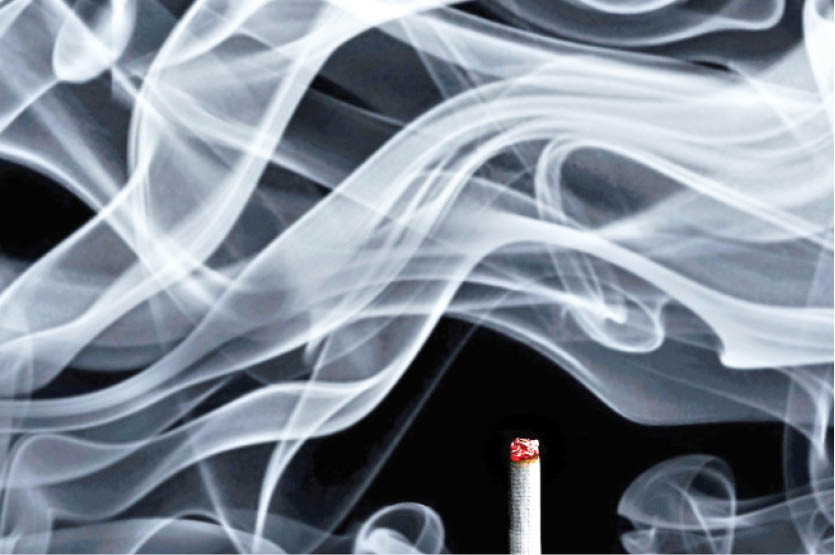More evidence smokers are at less risk of COVID-19
Smokers are less likely to be diagnosed with COVID-19 compared to those who have never touched a cigarette, another study has claimed. An array of research carried out since the pandemic began has shown smokers are at lower risk of getting the coronavirus. Now researchers in Mexico have added more weight to the evidence, which […]

Smokers are less likely to be diagnosed with COVID-19 compared to those who have never touched a cigarette, another study has claimed.
An array of research carried out since the pandemic began has shown smokers are at lower risk of getting the coronavirus.
Now researchers in Mexico have added more weight to the evidence, which experts have called bizarre and said warrants further investigation.
Scientists analysed data from almost 90,000 patients and found smokers were 23 per cent less likely than non-smokers to get diagnosed with Covid-19.
And the team also found smokers who did get infected were no more likely to need intensive care, be hooked up to a ventilator or die.
The findings support the theory that smokers are somehow protected from Covid-19, with data from Britain, the US, China and Italy all suggesting the same.
Scientists are starting to believe nicotine may be able to block the coronavirus from entering cells, preventing the infection in the first place.
Others say nicotine may control the immune system, stopping it from dangerously over-reacting to infection – a phenomenon found to be killing many Covid-19 patients.
Doctors are keen to trial nicotine patches in the fight against COVID-19 . But they have warned against encouraging smoking tobacco because of its known dangers.
Smokers are 23 per cent less likely to be diagnosed with Covid-19 compared to those who have never touched a cigarette, a study claims. They are six per cent less likely to be admitted to hospital and no more at risk of ICU or death than non-smokers
The study was a joint investigation by scientists in Mexico, Greece and the US, led by Dr Theodoros Giannouchos of the University of Utah.
The team said to the best of their knowledge, this is the largest study of patients with a confirmed COVID-19 diagnosis.
It included 236,439 people who had been to a medical centre with a suspected viral respiratory illness – 89,756 tested positive for Covid-19 and 146,683 tested negative.
Any underlying health conditions, such as diabetes, were noted down. The team also identified whether or not the patient was a smoker.
People were classified as either a smoker or non-smoker – ‘former smoker’ was not an option but the scientists did not explain why.
Most patients were 18 to 44 years old and Mexican. Around 40 per cent of all patients had one or more co-morbidities.
Some 8.3 per cent who were diagnosed were current smokers. In contrast, around 14 per cent of adults in Mexico are estimated to smoke.
Researchers identified the main risk factors for COVID-19 by comparing the data of those with a positive or negative test.
Smokers were 23 per cent less likely to be diagnosed with Covid-19 compared to non-smokers, the findings claim.
Of those who were diagnosed, smokers were six per cent less likely to be admitted for hospital care compared to non-smokers.
No major differences were observed between the current smokers and non-smokers when looking at adverse outcomes, including ventilation and death.
The researchers, whose findings have yet to be peer-reviewed in a scientific journal, said the results were not ‘unexpected’.
They added that ‘multiple comorbidities contribute to disease complexity and such patients are more susceptible and vulnerable to adverse events’.
“Notably, smoking was not associated with a higher risk for adverse outcomes and hospitalization,’ the team wrote in their paper published on medRxiv.
“Smokers were also less likely to be diagnosed with Covid-19.” The experts added that the findings were ‘in agreement’ with a study from Israel.
The Israeli study referenced, published last week, pooled data from more than three million people, including 115,000 swabbed for the virus.
Dr Ariel Israel and his colleagues uncovered a ‘genuine’ protective effect of smoking. They also published their findings on MedRxiv.
Culled from Mail Online
